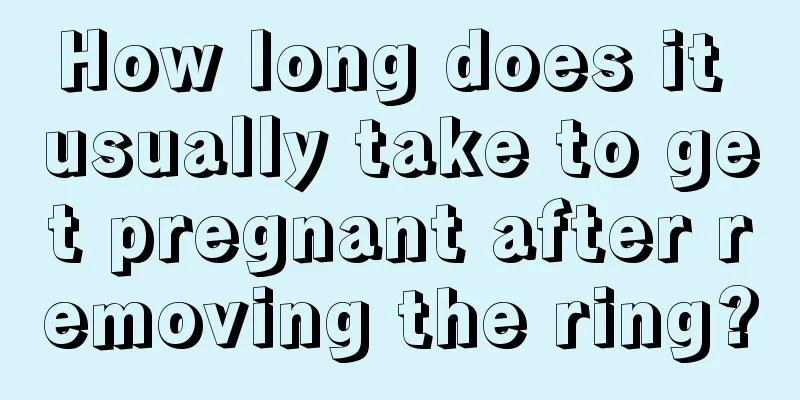Can I breastfeed if I have postpartum depression?

|
The prevalence of postpartum depression is getting higher and higher. At the beginning, it may just be troublesome and unhappy. If it is not treated in many aspects, it may develop into depression. It has to be admitted that for pregnant women, the company of family members is very important. If they are not paid attention to and cared for at this time, they are likely to suffer from postpartum depression. So, how long does postpartum depression last? Is it possible to breastfeed during postpartum depression? How long does postpartum depression last? Postpartum depression usually begins 6 weeks after giving birth and lasts about half a year. The early symptoms are not severe and can be cured through appropriate adjustments. If the condition persists for a long time without effective relief, it may develop into severe depression. Treatments include: 1. Self-adjustment, get more sun exposure, communicate more with family members, and communicate more with other pregnant women about parenting experiences; 2. If the symptoms cannot be improved after self-adjustment or if the patient is suffering from severe depression, it is recommended to see a psychiatrist as soon as possible for timely treatment. But in fact, the duration of postpartum depression varies from person to person: 1. Severity: Postpartum depression can be divided into mild, mild-moderate and moderate-severe. The duration varies according to the severity of the symptoms. The duration of mild patients is generally shorter; 2. Time to seek medical treatment: If the patient can be discovered as early as possible and treated promptly through psychological guidance, medication and other methods, the duration will be shorter. If postpartum depression patients can be treated in time to avoid bringing negative emotions to their children, it will generally have no impact on the children's growth. Can I breastfeed if I have postpartum depression? Postpartum depression generally has no effect on pregnant women's breastfeeding, but most patients may experience low mood or reduced interest and hobbies due to postpartum depression, which may reduce their intention to breastfeed their baby. After the occurrence of postpartum depression, active intervention should be carried out to minimize the symptoms and side effects of depression and to meet the normal requirements of pregnant women for breastfeeding. Generally, psychological guidance is provided to pregnant women. During the special period after childbirth, some pregnant women may experience complications, such as mastitis during the confinement period, which causes physical discomfort and becomes an aggravating factor of postpartum depression. Under the influence of these factors, the desire to breastfeed or the actual breastfeeding capacity is reduced. |
<<: How long does postpartum depression last?
>>: Can using a belly belt after childbirth really help you lose belly fat?
Recommend
There is black sticky substance during menstruation
If women have irregular menstruation, they should...
What can't you do when you're pregnant?
When you just get pregnant, you should pay more a...
What is the relationship between Dasha and Ayi? Dasha's true identity is revealed
The movie "Hot Blooded Journey" starrin...
What are the dangers of uterine prolapse
The harm caused by uterine prolapse is very serio...
What should I do if I have hemorrhoid pain?
Hemorrhoids are a relatively common disease. Alth...
What is the difference between breast nodules and hyperplasia?
Breast hyperplasia refers to the proliferation of...
Can I still induce labor after six months?
Both artificial abortion and induced labor will c...
Tuberculosis, the dust of history
This is the 5163th article of Da Yi Xiao Hu Betwe...
What causes urethral pain in women
The urethral opening is a safe channel for normal...
What is the disease caused by turbid leucorrhea?
Leucorrhea is a substance unique to the female bo...
Pelvic inflammatory disease leads to fallopian tube obstruction, and chronic inflammation requires surgery
Pelvic inflammatory disease leading to fallopian ...
How to maintain the uterus after abortion
Everyone hopes to have a healthy body, but if we ...
How should women with hemorrhoids be treated?
Female friends must pay more attention to observa...
What causes headaches during confinement?
After ten months of pregnancy, giving birth is a ...
Are fungal infections serious?
Fungal infection is a very common vaginal disease...









